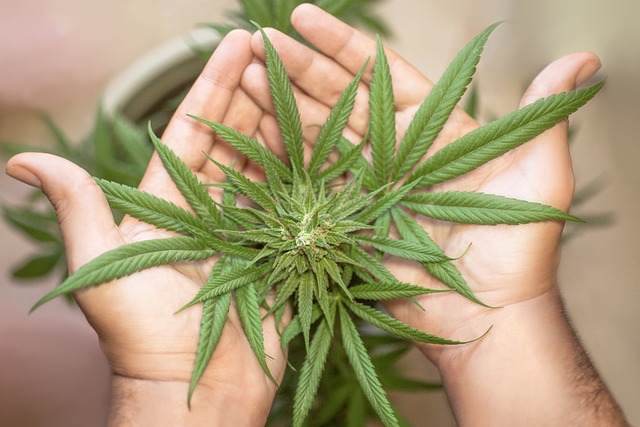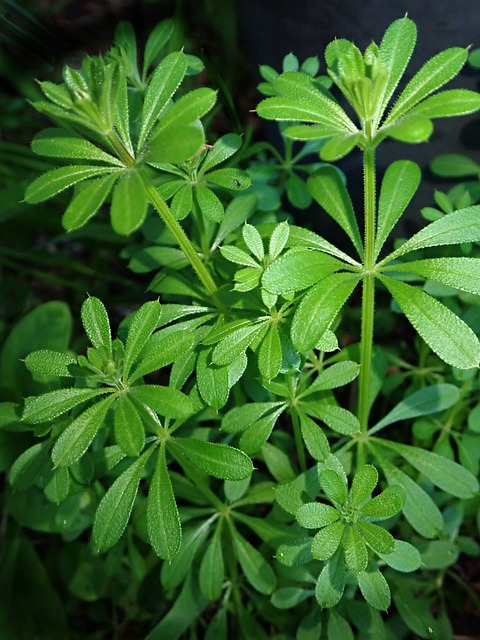TL;DR: THCA flower has been studied for its anti-nausea benefits, which are attributed to its interaction with CB1 receptors in the endocannabinoid system. Unlike its psychoactive counterpart delta-9-THC, THCA does not induce a high, making it suitable for those sensitive to psychotropic effects. Preclinical research supports its use as an anti-emetic agent, particularly for individuals, such as cancer patients undergoing chemotherapy, who often experience nausea and vomiting. The potential of THCA in managing these symptoms is linked to its action on the 5-HT1A serotonin receptor. As a non-psychoactive alternative, THCA flower offers an attractive option for those seeking natural remedies without the mind-altering side effects of traditional cannabinoids, highlighting its role as a significant therapeutic agent in the realm of anti-nausea treatments.
Discover the natural healing power of THCA flower, a botanical wonder with potent anti-nausea properties. This article delves into the transformative effects of THCA—tetrahydrocannabinolic acid—and how it can offer relief from nausea without the psychoactive impact of its well-known counterpart, THC. From historical uses to cutting-edge clinical studies, we’ll explore the science behind THCA’s anti-nausea effects and how it differs from other cannabinoids. Learn about the endocannabinoid system’s role in maintaining balance within our bodies and how THCA interacts with this vital network. Whether you’re seeking alternative remedies or considering complementary therapies, this comprehensive guide will provide insights into dosage, personal experiences, and how to source high-quality THCA flower for its anti-nausea effects. Join us as we unravel the potential of raw cannabis consumption and envision the future of THCA flower in medical treatments for nausea.
- THCA Flower: Unlocking Its Natural Anti-Nausea Properties
- The Science Behind THCA's Anti-Nausea Effects
THCA Flower: Unlocking Its Natural Anti-Nausea Properties

Delta-9-tetrahydrocannabinolic acid (THCA) is a non-psychoactive cannabinoid found in the cannabis plant, which has garnered attention for its potential therapeutic benefits. Among these, the anti-nausea effects of THCA flower have been a subject of interest within the scientific community. Research suggests that THCA interacts with the body’s endocannabinoid system, particularly the CB1 receptors responsible for controlling nausea and vomiting. Unlike its psychoactive counterpart, delta-9-THC, THCA does not induce a high but effectively mitigates symptoms of nausea in individuals who consume it. Preclinical studies have demonstrated that THCA possesses anti-emetic properties, making it a promising compound for those undergoing treatments, such as chemotherapy, that often lead to these debilitating side effects. The natural anti-nausea effects of THCA flower are attributed to its ability to modulate neurotransmitter functions and balance the body’s physiological responses to distressing conditions, offering a potential alternative for nausea management without the psychoactive impacts associated with medical marijuana use.
The Science Behind THCA's Anti-Nausea Effects

Delta-9-tetrahydrocannabinolic acid (THCA), which is the raw, non-psychoactive form of THC found in cannabis plants, has garnered attention for its potential health benefits. Among these, THCA’s anti-nausea effects have been a subject of interest due to its interactions with the body’s endocannabinoid system. Studies suggest that THCA interacts with the CB1 and CB2 receptors, which are part of this system, to alleviate symptoms associated with nausea and vomiting. This is particularly significant for individuals undergoing treatments like chemotherapy, where nausea is a common side effect. The anti-emetic properties of THCA are believed to be related to its ability to activate the 5-HT1A serotonin receptor, which plays a role in regulating nausea and vomiting. Furthermore, THCA’s potential as an anti-nausea agent is supported by preclinical research that demonstrates its effectiveness in various models of nausea, indicating that THCA flower preparations could hold promise for those seeking natural alternatives to manage these symptoms without the psychoactive effects associated with delta-9-THC.
The exploration into the THCA flower has revealed compelling evidence of its natural anti-nausea properties, backed by scientific research that elucidates the mechanisms at play. The potential of this compound offers a promising alternative for those seeking relief from nausea without relying on traditional pharmaceuticals. As further studies continue to shed light on the full spectrum of benefits offered by THCA flowers, it is clear that they hold significant promise in natural health remedies.
